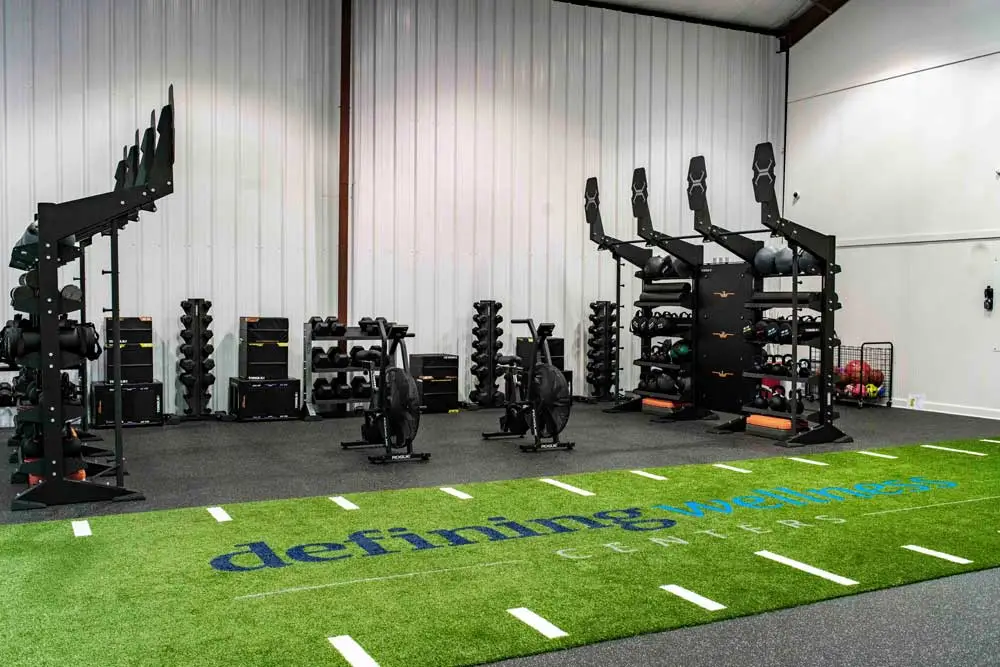The Ultimate Guide to Inpatient Drug and Alcohol Rehab in Mississippi
Substance use disorder is a major problem in Mississippi, as it is across the country. Substance abuse of all kinds, including alcohol, opioids and methamphetamine, has been on the rise throughout the Magnolia State. If you or someone you care about is in need of assistance, it is essential that you have a firm grasp of the Mississippi inpatient rehab landscape before deciding on a course of treatment.
Alcohol Abuse
Alcoholism impacts people of all ages and backgrounds in Mississippi. Hospitalizations and alcohol-related deaths continue to affect individuals and their families throughout the state. Mississippi inpatient facilities take a holistic approach, treating the client’s physical and mental health issues simultaneously. To safely treat withdrawal symptoms, these programs often start with medically supervised detoxification. Then, they move on to intense therapy and counseling to address the root causes of alcohol dependence. The treatment goals, which may include family therapy, motivational interviewing and cognitive-behavioral therapy, aim to teach clients how to cope with their addiction and stay sober in the long run.
Opioid Addiction
Overdoses and fatalities in Mississippi have risen dramatically in recent years, attributable in large part to the opioid epidemic. As a result, state inpatient rehab centers have created extensive programs to treat opioid addiction. In addition to behavioral therapies and intense counseling, these programs frequently use medication-assisted treatment with FDA-approved narcotics like buprenorphine or methadone. Those battling opioid addiction can greatly benefit from the structure and supervision provided by inpatient treatment programs by managing cravings and preventing relapse during the early phases of recovery.
Methamphetamine Use
The usage of methamphetamine is a major issue in Mississippi, especially in rural regions. The state’s inpatient treatment facilities for methamphetamine addiction provide individualized plans to overcome the disease’s specific symptoms and complications. In addition to treating any co-occurring mental health concerns, these programs help clients overcome the severe psychological dependence that comes with meth use. Combinations of evidence-based techniques and cognitive-behavioral therapy are common in treatment. As a result of the long durations of supervised treatment frequently necessary for stable recovery, inpatient institutions offer the round-the-clock support that meth users need.
Cocaine Abuse
Even though it’s not as common as other drugs, cocaine usage is still an issue in Mississippi, especially in the cities. Cocaine addiction treatment methods at inpatient rehab centers are all-encompassing, taking care of the addict’s mental and physical health. Detoxification under medical supervision is a common first step in these regimens, which often continue with extensive counseling and therapy. Treatment methods may include motivational enhancement therapy, contingency management and cognitive-behavioral therapy. Inpatient treatment improves the likelihood of a successful long-term recovery by providing a safe area to cope with the severe cravings and mood fluctuations that are common during cocaine withdrawal.
Barbiturate Addiction
Despite its rarity, barbiturate addiction poses serious health risks owing to the drug’s potent overdose potential and unpleasant withdrawal symptoms. With medically supervised detoxification and treatment programs, Mississippi inpatient rehab institutions can manage the complicated needs of barbiturate addicts. In these programs, clients sometimes undergo medically supervised tapering off of the medication, after which they engage in intense treatment to address the root causes of their addiction. To manage the potentially fatal withdrawal symptoms of barbiturate dependence, inpatient treatment is essential since it provides around-the-clock monitoring.
Choosing the Right Inpatient Rehab Facility
Choosing the right Mississippi inpatient rehab center is an important step toward a successful recovery. When you’re trying to select a facility, think about things like the facility’s accreditation, the staff’s qualifications the therapies offered, and the treatment philosophy. Make sure to prioritize finding one that offers individualized care plans and a full spectrum of services, including aftercare. Location, budget and insurance coverage are other crucial considerations. To help you figure out if their treatment is right for you, several respectable Mississippi rehab centers provide free consultations or evaluations.
Duration and Goals of Inpatient Rehab
Inpatient treatment programs in Mississippi can range in length from a few days to several months, depending on the client’s specific needs and the degree of addiction. Program durations typically fall between 30 and 90 days, while some centers provide extended care options for clients who need more time in therapy. Attaining and maintaining sobriety, learning to cope with cravings and triggers, treating any co-occurring mental health concerns and enhancing one’s physical and emotional health are the key objectives of inpatient treatment. During treatment, clients and their support system work together to establish and reach individual recovery objectives, which pave the way for continued success in sobriety.
Structured Environment
A highly structured atmosphere is one of the main advantages of inpatient rehabilitation. Therapy, group sessions, educational courses and leisure activities are all part of a well-organized daily routine for clients. A feeling of consistency and routine is helpful during recovery from active addiction, and this framework helps to eliminate the disorder and unpredictability that is typically associated with it.
Medical Monitoring
It’s especially important for people going through detoxification or who have multiple medical issues to have access to round-the-clock medical monitoring during treatment. With inpatient rehab, there is a medical team available at all times to help with withdrawal symptoms, give medicine as needed and deal with any problems that may develop throughout therapy. Clients are able to relax and concentrate on their rehabilitation without interruption from medical professionals because they are under continual medical observation. Ongoing evaluations of each client’s psychological and physiological well-being also allow medical professionals to swiftly modify treatment programs.
Intensive Therapy
Intensive therapy, which focuses on the mental and emotional components of addiction and teaches clients coping mechanisms for life after treatment, is a vital component of residential treatment programs. Treatment often takes place in both individual and group settings, giving clients the chance to work through their problems in a safe environment. This also allows them to make connections with others who understand what they’re going through.
Clients struggling with addiction usually benefit from cognitive-behavioral therapy (CBT), an evidence-based method that teaches them to recognize and alter destructive ways of thinking and behaving. Dialectical behavior therapy (DBT) helps clients learn to control their emotions and deal with stress by combining aspects of CBT with mindfulness practices.
Individuals who struggle with change ambivalence and low recovery motivation can benefit from motivational interviewing, a client-centered approach. Restoring broken relationships and establishing a stable home environment for continuous recovery are two goals of family therapy, which entails bringing loved ones into the healing process.
Eye movement desensitization and reprocessing (EMDR) and other trauma-informed therapy approaches can help people with a history of trauma overcome the trauma-related difficulties that may be contributing to their substance misuse. Complementary and alternative medicine (CAM) services are available at some Mississippi inpatient treatment facilities. These services may include yoga, meditation, art therapy, music therapy and self-expression classes.
Peer Support
Inpatient rehabilitation relies heavily on the support of one’s peers. Through group therapy and shared housing, clients can meet others who are going through the same things. Peer support is a great tool for those in recovery since it provides accountability, understanding and encouragement. As part of their treatment regimens, many Mississippi inpatient facilities also connect clients with peer support groups or 12-step programs; this helps them establish a support system that will be there for them even after they’ve left the rehab program.
Removal from Triggers
The elimination of potential triggers in the client’s living environment is another major benefit of inpatient rehabilitation. By removing themselves from situations that bring on their addiction, clients are able to better understand their condition and learn healthy ways to cope. Being away from regular life also gives you a chance to think about yourself and grow as a person, which are two things you need in order to become well.
Skill Building
Learning new life skills is a big part of Mississippi’s inpatient rehab programs, which aim to help clients stay sober for the long haul. Clients get a wide range of useful skills that can enhance their lives and aid in their sober journey. Among these, you may find methods for dealing with stress, improving your communication abilities, learning to solve problems and developing a strategy to avoid relapse. A lot of facilities also provide classes on life skills, which include things like budgeting, being ready for the workforce and making healthy lifestyle choices.
Personalized Treatment Plans
Inpatient treatment centers in Mississippi usually provide individualized programs since they know that everyone’s road to recovery is different. Upon admission, there is a thorough evaluation of the client’s physical and mental health, as well as their history of substance use and other personal factors. Each client’s unique requirements, objectives and obstacles influence the development of a personalized treatment plan. To address the unique needs of each person, these individualized programs may incorporate a range of therapies, medical interventions and support services. Reviewing and adjusting these plans as needed during therapy ensures they continue to meet the client’s developing needs.
Accountability Through Peers
Inpatient treatment encourages individuals to take responsibility for their own recovery because of the group setting. When people are in treatment or living with others who are also trying to get sober, it makes for a much more encouraging and motivating atmosphere. Clients are more likely to maintain their commitment to their recovery goals when they have accountability from their peers, which can be a strong incentive in and of itself.
Long-term Sobriety
Helping people get sober and stay sober for the long haul is the end goal of inpatient treatment programs. Although getting sober is never a picnic, the rigorous and all-encompassing nature of inpatient treatment sets clients up for long-term success. Mississippi inpatient treatment facilities educate clients on how to cope with the social, emotional and physiological components of addiction in a safe and structured setting so that they can continue to recover even after they leave the program. Creating a reliable strategy to avoid relapse, surrounding yourself with supportive people and learning to deal with everyday obstacles are all part of this process.
Aftercare and Continuing Support Following Inpatient Rehab
Many Mississippi inpatient rehab centers include extensive aftercare services to help clients adjust to life back on their own after completing inpatient treatment. Some of the components of these aftercare plans can be alumni programs, regular counseling check-ins, support groups and outpatient therapy sessions. For individuals who require further assistance before reintegrating into independent living, several facilities also provide sober living arrangements called halfway houses.
With an emphasis on holistic wellbeing and individual attention, Defining Wellness Centers provides a novel method of addiction treatment in Mississippi. Situated on 26 acres of peaceful land in Brandon, close to Jackson, our facilities offer a peaceful environment that is ideal for healing. We go above and beyond conventional rehabilitation by tailoring our services to each patient’s unique path to health and attending to their emotional, physical and spiritual requirements. Dual diagnosis and gender-specific treatments are part of our approved programs, which are individualized for each client. In order to provide all-encompassing care, we involve clients’ families in supportive roles and work closely with them. Whether you are struggling with mental health issues or are trying to get sober, our caring staff stays committed around the clock to helping you achieve long-term wellness.









